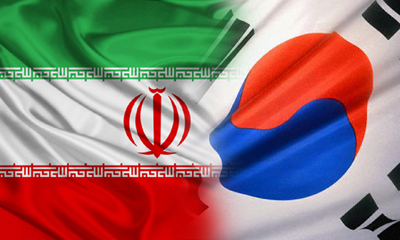South Korean prosecutors have detained and charged a Korean American with the illegal transfer of a staggering 1.09 trillion won ($1.02 billion) in Iranian money frozen in South Korea under international sanctions, the lawyers said on Friday, Reuters reported.
The Seoul Central District Prosecutors' Office said a 73-year-old man, identified only by his family name, Chung, was suspected of making fraudulent transfers in 2011 from the Iranian central bank's won-denominated account at a South Korean bank by using fake invoices for payment.
Prosecutors marvelled at the scale of the withdrawals, indicating they believed there had to be more than one person involved. The prosecutors' office said those involved took advantage of a banking procedure that was now more tightly supervised.
What was not immediately clear was whether this was an attempt to break sanctions targeting Iran's controversial nuclear programme, or whether this was just a criminal scam, albeit a very large one. A prosecutor with direct knowledge of the case declined to comment on whether the transfers violated the sanctions.
Chung had contacts in Iran and the United Arab Emirates and was suspected of transferring the money into accounts in third countries, the prosecutor said.
The prosecutors' office and the Industrial Bank of Korea (IBK) confirmed media reports that identified the state-owned lender as the financial institution that held the Iranian central bank account.
IBK had received a payment order from the Iranian central bank, the bank and prosecutors said. It believed the order to be authentic because Chung had attached authorisation from the Bank of Korea and a government agency that tracks exports of goods to countries under international sanctions, the prosecution said.
Korean exporters and traders must get prior clearance from the government for products they plan to sell to Iran.
"This is a criminal case perpetrated by an individual to circumvent the Korea-Iran won transaction system and the Bank of Korea's approval system," the prosecutors' office said in a statement.
However, prosecutors couldn't track down who placed the order from Iran because South Korea does not have an agreement with Tehran to cooperate on criminal cases.
Chung was being held in detention and neither he nor his legal representative was available for comment. Law enforcement officials in South Korea often withhold criminal suspects' full names because it possible for the accused to sue for libel regardless of the outcome of the case against him.
International sanctions have made it difficult for Iran to transmit oil payments from South Korea and other countries. The Iranian central bank has an equivalent of $5-$6 billion in won-denominated accounts in South Korea, industry sources have said.
"We believe involvement of (entities in) Iran is possible," the prosecutor said, requesting anonymity due to the sensitivity of the matter.
South Korean exporters and traders usually collect payments by withdrawing from won-denominated deposits of the Iranian central bank that are mostly generated by Iran's oil sales in South Korea.
South Korea's imports of crude oil from Iran dropped 35.6 percent last year after the sanctions were imposed, data from state-run Korea National Oil Corp showed this month.
Iran had a $2.3 billion trade surplus with South Korea in 2012, official data shows. ($1 = 1,069 won)






